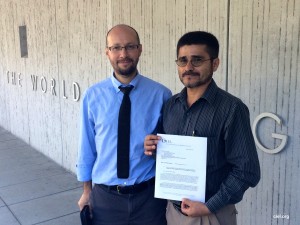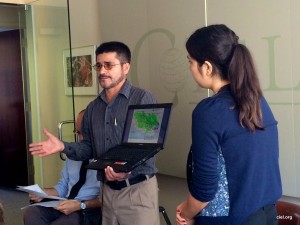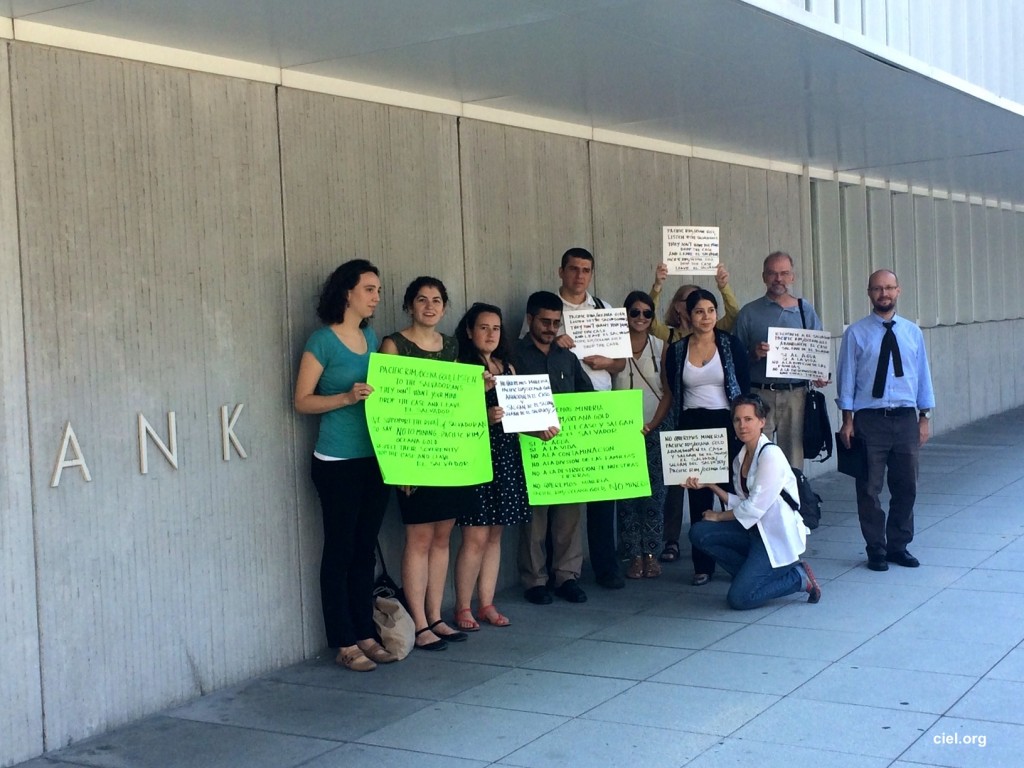A new amicus brief supports human rights and environmental protection in El Salvador’s battle to uphold environmental laws against Pac Rim Mining Corporation’s lawsuit.

On July 25, CIEL co-hosted a brownbag lunch discussion featuring Teodoro Antonio Pacheco, a Salvadoran environmental activist who is speaking out against the Pac Rim Mining Corporation’s (Pac Rim) most recent attempt to bypass El Salvador’s environmental protection laws using investor-state dispute settlement (ISDS). ISDS has a history of allowing corporations to hold countries hostage for enforcing their human rights and environmental laws.
Pacheco is the Executive Director and founding member of Santa Marta’s Association for Economic and Social Development (ADES) in Cabañas, El Salvador, which is a member of the National Roundtable Against Metallic Mining in El Salvador. La Mesa, a coalition of civil society organizations that have opposed the introduction of industrial scale metal mining in the country, is raising awareness in El Salvador and demonstrating that Salvadorans have not granted Pac Rim the social license to operate.
In 2009, Pac Rim sued El Salvador for $77 million USD in lost investment under the investment chapter of the Central American Free Trade Agreement (CAFTA) after the Salvadoran government upheld a nationally supported mining moratorium. CIEL has supported El Salvador’s case by assisting La Mesa in submitting an amicus curiae or “friend of the court” brief (also available in Spanish) at the International Center for Settlement of Investment Disputes (ICSID), where the case will be resolved. ICSID is an independent tribunal at the World Bank, and has been widely criticized for its notoriously opaque processes. In 2012, ICSID found in favor of arguments presented in La Mesa’s brief that the suit under CAFTA was improper.
 PacRim, however, continues to push brazenly forward in suing El Salvador at ICSID – now for more than $300 million USD.
PacRim, however, continues to push brazenly forward in suing El Salvador at ICSID – now for more than $300 million USD.
Pacheco’s visit to DC coincided with a new amicus submitted by La Mesa, again with CIEL’s support, to ICSID. This second brief addresses three elements relating to the merits of the dispute:
- First, the brief counters Pac Rim’s argument that legal requirements and procedures established under Salvadoran law are only formalities, on the basis that human rights law requires the State to set up a robust legal framework that can safeguard human rights potentially affected by environmental harm.
- Second, it establishes that the state must respond to the views expressed in the societal dialogue in El Salvador, in accordance with the rights of access to information, participation and justice in environmental matters.
- Third, the brief demonstrates that the company does not hold a social license to mine, and that the company has generated a social conflict that has resulted in the murders, torture, kidnappings, and assaults to environmental defenders.
 Pacheco stated that this mine is a major concern to the people of El Salvador, and the country is working to raise more public awareness around the case. While mining companies like Pac Rim could see enormous profits from mining, Salvadorans will have to pay for the long-term impacts of mining activities, like the destruction of livelihoods, water scarcity, and an environment made unsuitable for agriculture.
Pacheco stated that this mine is a major concern to the people of El Salvador, and the country is working to raise more public awareness around the case. While mining companies like Pac Rim could see enormous profits from mining, Salvadorans will have to pay for the long-term impacts of mining activities, like the destruction of livelihoods, water scarcity, and an environment made unsuitable for agriculture.
In June, 2014, the case of El Salvador versus Pacific Rim was presented at the United Nations Human Rights Council in Geneva as an example of the imbalance between the comparatively weak power of governments to protect citizens and the enormous power wielded by corporations that sue under ISDS – regardless of the validity of the case. The Council adopted a resolution in June that sets up a working group to negotiate a treaty on business and human rights corporations.
The next hearing on Pac Rim vs El Salvador will start on September 15 in Washington, with the final decision on the merits of this case expected sometime thereafter.

View more photos from the event here.
Originally posted on August 2, 2015.
